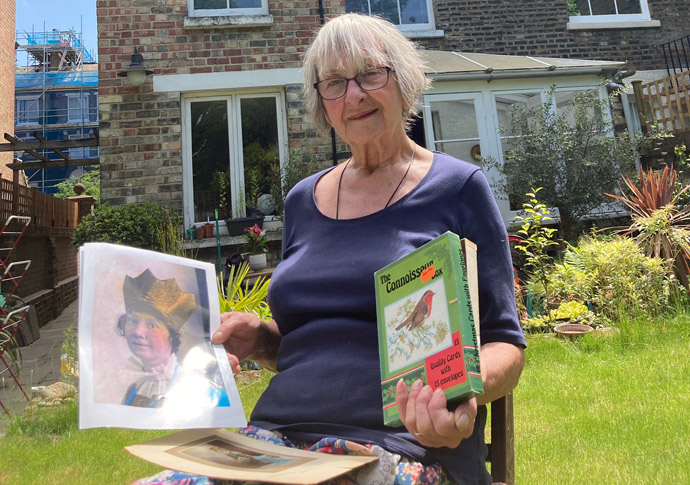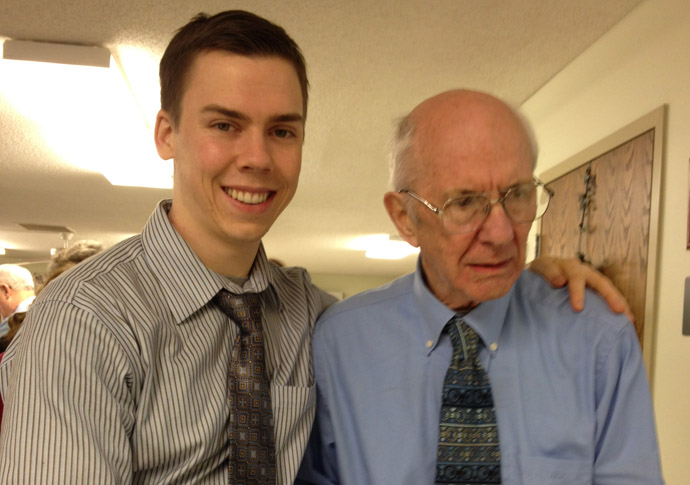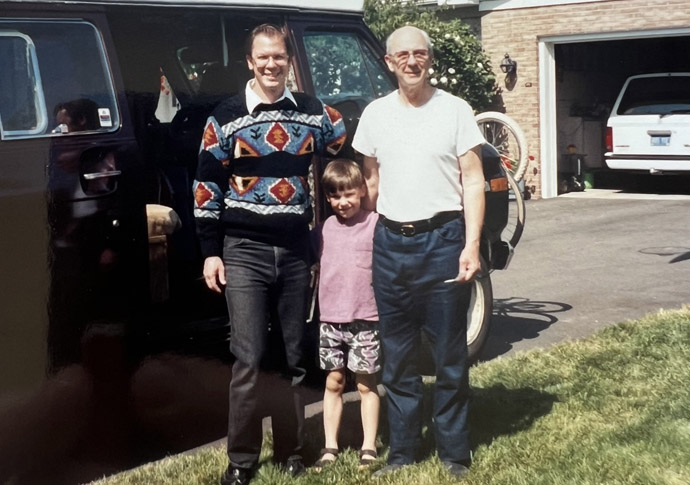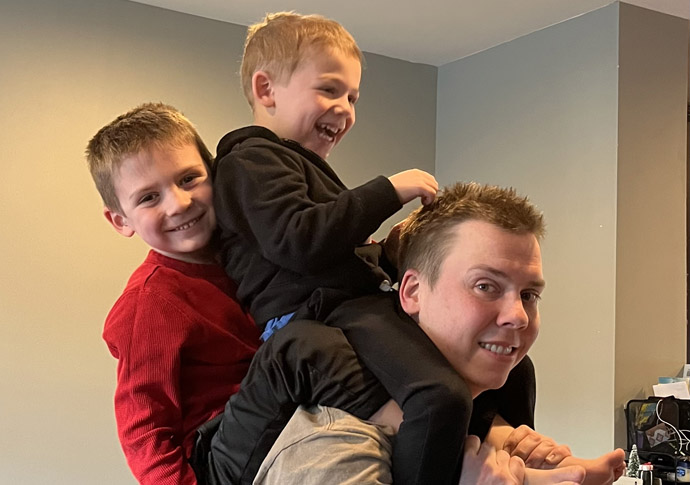Love letter mystery leads to the States
Appeal in Tribune helps track down descendant of soldier who wrote messages to his lover
Friday, 7th July 2023 — By Charlotte Chambers

Betty Reisner with a picture of Elsie
THE woman who found a series of heartbreaking letters written by a soldier to his lover from the trenches during the First World War has made contact with one of his descendents.
Thirty years ago Betty Reisner, a retired PA from Freegrove Road, Holloway, found the letters in her attic and last month appealed through the Tribune to find the descendants of the man who wrote them.
On Wednesday she did, finally speaking to Jonathan Dudley, a doctor from Baltimore in America, and the great-great-nephew of the letter writer, Carl Dudley.
The correspondence charts a romance that is funny, mundane and tragic in equal measure, and concern Carl and his sweetheart Elsie Griffiths, who once lived with her family in the house Ms Reisner now lives in. Elsie must have stored the letters in the attic for safekeeping after Carl was killed in action.
Elsie never married, and she died in the 1940s.
Dr Dudley, 37, whose middle name is Carl, revealed he knew very little about who he had been named after, with just one clue left by his own grandfather, also named Carl – before Ms Reisner’s letters emerged.
In the year 2000, when Dr Dudley was just 14, his grandfather typed out a letter that went into detail about the tragic family history of their shared name and was, in fact, very out of keeping with his reserved nature, he said. But Dr Dudley did not receive the letter until he was in his late 20s when his grandfather died and it was found in his possessions.
The letter from his grandfather states: “My parents named me Carl after my dad’s brother, who was killed in the First World War. He was fighting for Great Britain in the trenches facing the enemy in theirs.
“It was a terrible situation, a stalemate as neither side could get out to charge the other side without getting mowed down. They just could sneak and peek and hide and get killed or wounded.

Jonathan Dudley’s last photo with his grandfather Carl
“Cold and mud and disease and hunger all took their toll as the war dragged through the winter.
“Finally, an armistice was about to be signed, and two weeks before the war was over my uncle Carl was shot in the head in the trench. He and my dad were typical brothers with sibling rivalry, teasing etc, but Carl had no family and my dad gave me his name in loving tribute. It could have been him.”
Explaining what it meant to him to receive Carl’s letter at the time, he said: “It was really amazing. My aunt sent it to me for Christmas.
“It was the best Christmas gift I could have gotten to have a letter like that. And it’s also kind of unique in that my grandpa wasn’t someone who talks a lot. So he’s more reserved you know, very friendly and socially normal, but just was more introverted. I had never seen him say that much. And I never learned many of the things that were in the letter. So that made it especially interesting and valuable to me to hear so much from him.”
He added that his family had been “very excited” about the tranche of letters Mrs Reisner found, which would give them a “renewed connection to the Dudley lineage” and an opportunity to “learn more about Carl”.
He said: “It’s a name that’s been carried on. It’s been intentionally a name that’s been passed forward in our lineage.”

Jonathan aged five with his father Kenneth and grandfather Carl in 1991
Dr Dudley, an assistant professor of pathology and oncology at The Johns Hopkins Hospital near Washington, has two sons and is the only male heir to carry on the Dudley name. His sons do not have Carl in their names.
Speaking to him this week, Ms Reisner said: “When I think about the letters [by Carl] I’m almost in tears. You know, they were so beautiful. Thinking about him in the trenches and writing those beautiful letters, you know, just thinking about it. And I tried to visualise him. And so now I can see your face I’m going to take some of your features and add them to the features that I have in my mind. I think that’s fair enough – there must be something of him in you.”
Describing what the letters have meant to her over the years, she told Dr Dudley how when she first found them she was struck by how intimate they were and how initially she put them away.
“And then I took them out again,” she added. “I went through each one, and it made me feel so close to him. Here was this young guy with all this in his mind – ‘Come closer, we’ll sit together and we’ll forget the war’.

Jonathan with his sons William, seven, and Thomas, four
“It was so, so private. Between them, you know, and then the next thing I’m here reading them and they’re all gone and they didn’t have that future together. She stayed on here with her mum and dad. When they died – this is a tall house – she took the rooms over. And then she was on her own and all her dreams had gone really. She just carried on doing what she was doing until she died.”
Thanking Ms Reisner, Dr Dudley said: “We are certainly grateful to you for recognising the value of the letters and hanging on to them and making an effort to contact descendants of Carl.”
He did have one question though: “How did you find me?” he asked.
The answer is Annette Witheridge, a friend and neighbour of Ms Reisner’s, a retired journalist who chronicles local characters and who tracked Carl’s family down on Facebook and Ancestry.com.
Ms Reisner plans to send the majority of the letters to the Imperial War Museum after they got in touch following the Tribune’s story last month, but will also copy them all for Dr Dudley and send some original ones too.
He said he will hang them on his wall alongside the letter from his grandfather.